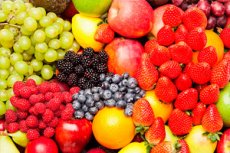
Depression is a significant public health problem worldwide. According to the World Health Organization, it is a major contributor to the unpredictable health burden, with more than 80% of this burden occurring in low- and middle-income countries.
A growing body of research suggests that dietary habits, especially increased consumption of fruits and vegetables, can significantly reduce the risk of depression.
A new study led by postdoc Annabel Mathieson from the Center for Healthy Brain Aging (CHeBA) at the University of New South Wales in Sydney, published in the Journal of Affective Disorders, explores for the first time There is a lack of data for older people and people in low- and middle-income countries.
“Compared with depression in younger people, depression in older people has a more severe impact on physical performance and cognitive function, and is also associated with lower quality of life and increased mortality,” explains Mathieson.
"Our goal in this study was to examine the relationship between fruit and vegetable consumption and depression in people aged 45 years and older."
Study participants came from various regions on six continents, including the United States, Sweden, Brazil, Nigeria, Malaysia and Australia. All data were collected and harmonized from ten long-term studies belonging to the CHeBA-led Cohort Studies of Memory in an International Consortium (COSMIC).
Researchers analyzed data from 7,801 people from non-depressed communities and found a positive association between increased fruit consumption and a reduced risk of depression over a nine-year period.
“This interesting result, demonstrating a protective association between fruit consumption and the risk of depression, highlights the need for greater attention to diet in public health,” says Mathieson.
Although the results of this study suggested benefits from vegetable consumption, no statistically significant data were found.
"The reason we found a positive association for fruits but not vegetables may be because vegetables are typically eaten cooked, which can reduce their nutritional value, while fruits are typically eaten raw."
Fruit and vegetable intake was assessed by self-report using comprehensive food frequency questionnaires, brief food questionnaires, or dietary history. Depressive symptoms were assessed using validated measures, and depression was defined using established criteria. Associations between baseline fruit and vegetable intake and the development of depression over a three- to nine-year follow-up period were analyzed using Cox regression.
It has been suggested that the high levels of antioxidants, dietary fiber and vitamins found in fruits and vegetables may have a beneficial effect on depression through various mechanisms, such as their role in inflammation, oxidative stress and gut microbiota. Because fruits and vegetables contain different nutrients, it is likely that different types of fruits and vegetables may have different effects on the risk of depression. The evidence that citrus fruits and green leafy vegetables are associated with a lower risk of depression is particularly strong.
CHeBA co-director and co-author of the study, Professor Henry Brodaty, said further research that takes into account the consumption of different types of fruit and vegetables using standardized measures and focusing on a larger number of older people, especially in low- and middle-income countries, is clearly needed. Justified.
"Expanding current studies of genes associated with dietary intake represents a promising avenue for influencing fruit and vegetable intake," says Professor Brodaty.
"The types of fruit and vegetables consumed should also be considered to better understand the relationships involved, and studies should be designed to allow greater comparability between cohorts," he added.

